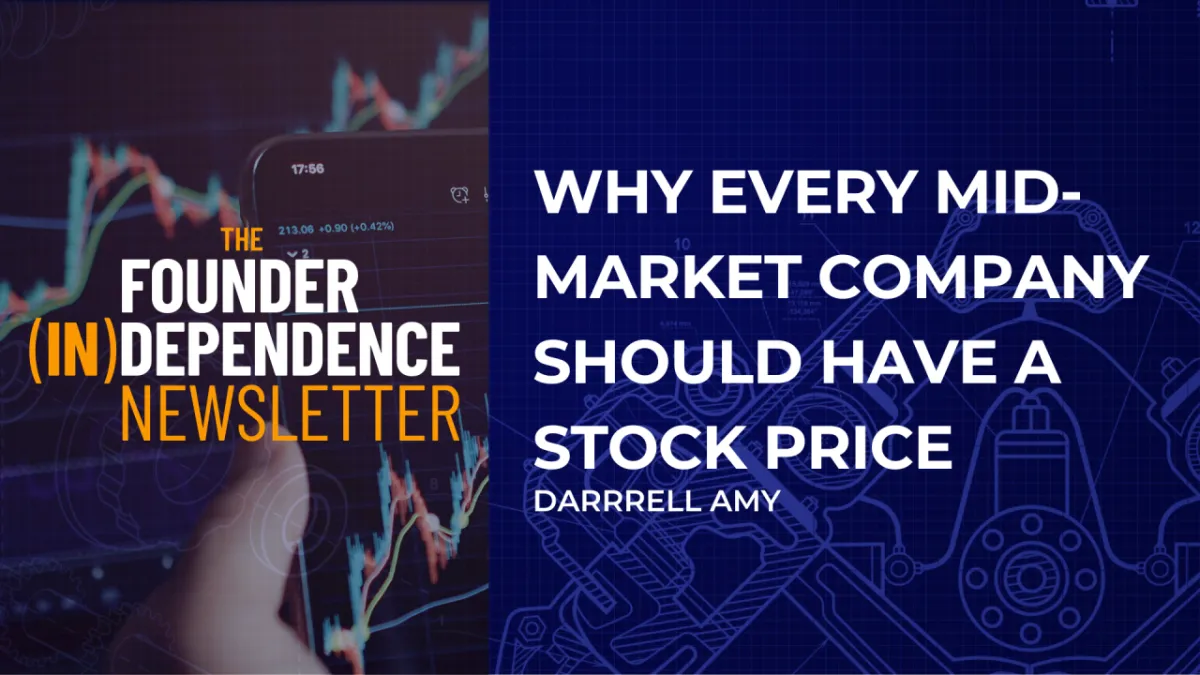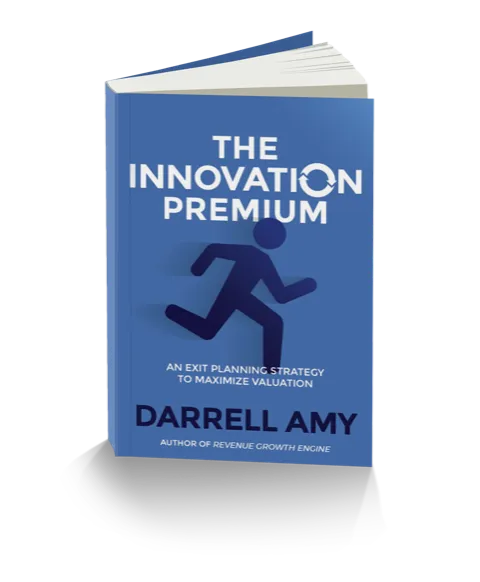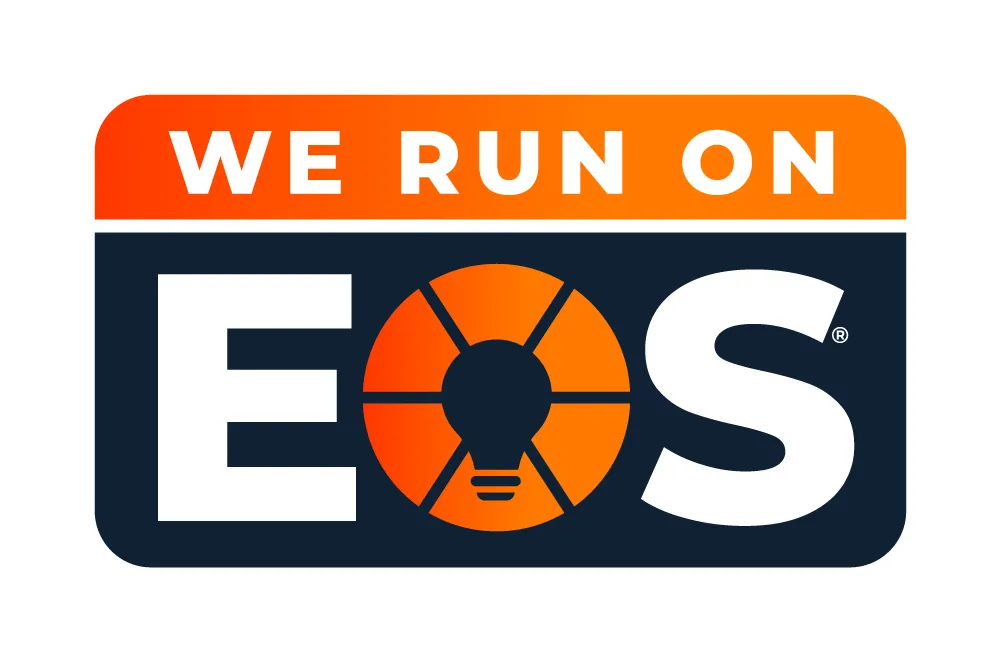THE VALUE CREATION BLOG

Why Every Mid-market Company Should Have a Stock Price
If I asked you what the value of Nike stock is you could tell me in seconds with a quick search. If you wanted to know the value of IRAs, you could log into your brokerage account and find the answer in seconds.
What would the answer be if I asked you what the value of your business? Could you give me a current and relatively accurate answer?
Unfortunately, many business owners don’t know. Their perceived valuation is at best a wild guess. They may have some idea of the range of multiples on EBITDA in their industry. However, the difference between a low multiple on EBITDA and a high multiple could be 2X or more.
Sadly, most business owners don’t discover the valuation of their business until they need to sell it. (Even worse, up to 50% of business sales are unplanned due to things like death, disability, divorce, or disagreements.) At the time of sale, the company's actual value (the amount a buyer is willing to pay) ends up being lower than what the owner needs to sustain their lifestyle. Other businesses get suckered into lowball offers because they don’t know the true value of their enterprise.
Since most mid-market business owners don’t actively track what their business is actually worth, they make business decisions based on the things they can measure: profit and/or cash flow. While this may lead to a healthy bottom line, it often takes the focus off the key intangibles that maximize valuation. Thus the founder tends toward becoming an operator in their company rather than seeing their company through the eyes of an owner/investor.
At some point, every business owner needs a mindset shift from being an operator to an owner. Operators measure profit. Owners measure enterprise value.
Imagine if your mid-market business had a stock price. What if you could see the increase (or decrease) of the valuation of your business each morning when you walk into your office? How would this impact your decision-making? You would become much more focused on creating value.
Here’s the good news: when you focus on increasing the valuation of your business, growth in profit, revenue, and cash flow naturally follow. However, when you focus on cash flow or profit there is no guarantee that value will increase.
Profit and value are related but not directly connected. Why is this? Simply put, there are many intangible drivers of value. Is the company founder dependent for culture, revenue, operations, or innovation?
Here are a few things that companies focused on valuation will see as critical rather than “nice to have.”
Revenue
What’s the track record of revenue growth?
How much of the revenue is under contract vs. project work?
Is there a marketing plan?
Is the sales process documented and repeatable?
Operations
Does the company have an operating system?
Are core processes documented?
Is there an onboarding and training program?
How do managers hold team members accountable?
Innovation
Does the company have an innovation team of do all new ideas come from the visionary founder?
Is there a process to pilot, optimize, and package new ideas for rollout?
Do they track the number of new ideas brought to market and the impact?
Culture
What's it like to be an employee?
Is there a management layer?
How engaged are the employees?
Is there a career path?
Customer Experience
What's it like to be a customer?
Are there meaningful surveys and focus groups for customers?
What new customer experience ideas has the company rolled out?
Everything on this list can be optimized to increase valuation. A company with an eye on valuation will prioritize these things. A company focused on profit will put these on the back burner. The difference in valuation between these two types of organizations will be dramatic.
What’s Your Company’s Stock Price?
Is it possible to estimate the value of your company? Yes! There are tools that can help you quickly determine the valuation of your company and track it over time. Of course, at some point you will also want to engage a valuation expert to do a deep dive to discover an even more accurate valuation of your company.
Armed with this information, you can shift from an operator mindset to an owner mindset. You’ll make better decisions as you work to grow value. Best of all, you’ll set yourself up for options down the road whether you want to sell your company or enjoy leading it into a brighter future.
Interested in a fast and affordable way to determine the current valuation of your business? Message me and I’ll share details of how this could work.
Originally published on Founder Independence Newsletter.
FREE BUSINESS VALUATION
What is Your Business Worth?
You can Discover the Value of Your Business in Less than 20 Minutes!
Join 70,000 business owners and get your score on the 8 Factors That Drive Your Company’s Value, a comprehensive analysis of your score and a detailed action plan for how to improve your score on each.


PREORDER YOUR FREE COPY NOW
Discover How to Create a Premium Valuation for Your Business
Learn how to command a premium multiple on your business
Find out why buyers discount their offers
See how innovation can help you create a premium valuation
Estimate your company's innovation index



